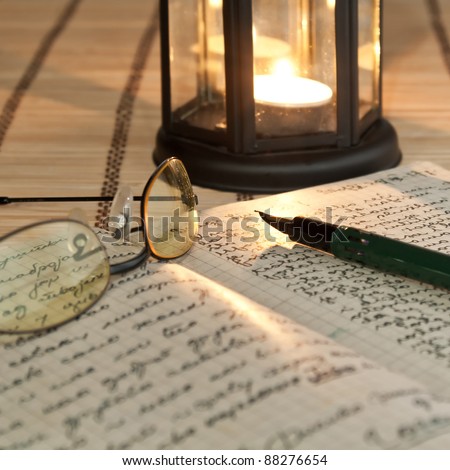 Something that I find fascinating about the writing/creative process is the edit-as-you-go opportunities that present themselves. Unlike many writers that I have spoken with, I do not like to write an extremely rough draft of a book and then go back and make a ton of editorial changes. I tend to perfect the piece as I go along so that, at the back of my mind, there is a little voice saying, "You can move forward with this story because you've put your best into it."
Something that I find fascinating about the writing/creative process is the edit-as-you-go opportunities that present themselves. Unlike many writers that I have spoken with, I do not like to write an extremely rough draft of a book and then go back and make a ton of editorial changes. I tend to perfect the piece as I go along so that, at the back of my mind, there is a little voice saying, "You can move forward with this story because you've put your best into it."My mother taught me good grammar and was very diligent to make sure I had put my best effort into my work. I think that instilled the right habits into my writing for the present day.
Would it surprise you to know that my third published novel, Key Of Living Fire, underwent only one major draft before I sent it to the publisher? And my editor was very pleased with the results. I say this because I believe that making our first efforts our best efforts is better than allowing a sloppy or second-rate job.
I imagine that some of the historical authors that I respect and admire did the same. They had to write it all out by hand, so the editorial process would have been even more involved if they did not pay attention to sentence structure, grammar, and the flow of the story. I can picture Jules Verne and H.G. Wells pondering hard over their stories before actually touching their quill to the paper.

4 comments:
It also makes you write slowly, which is the one major problem with "editing as you go". If, like you, the writer is confident of their abilities to finish a book, this method works nicely. I write fairly good first drafts as well. But many beginning writers simply can't write a draft at all if they edit as they go, so I encourage most people to write first and edit later.
I hear where you are coming from. But learning the writing craft better at the outset means that writers will save a lot of time that would otherwise be spent on multiple revisions. Most of my fellow published authors look to write a couple thousand words per day and my word-count is often higher than theirs.
If you learn to write strong on the first draft, the remainder of the editing process is far less hassle, and you can write just as fast as a rough draft.
Very true. To write a "very good" first draft (at least in prose) has another issue, however: it leaves out the possibility of revising *plot*. I've read more than one Christian book that has had good prose but wince-worthy plot. Prose may be good in a first draft, but I've never heard of a novelist that has written an excellent plot the first time around. Excellent plot requires a lot of painstaking revision. The only exception to this are novelists like K. M. Weiland, who outline extensively and work out plot kinks before writing.
The writers will save a lot of time...later. But lot of writers I know would give up if they tried to write stellar first drafts (whether they have the viewpoint of learning to write well or no), so my point still stands. It's better to write a bad first draft than no draft at all.
Revision may be a hassle, but without it a book may as well be trashed, no matter how good the first draft was. Writers like Bryan Davis (who has the best prose quality of any writer I know) spend twice as much time revising than they do writing.
Bryan Davis does spend a lot of time editing but he is also a by-the-seat-of-his-pants plotter. He does not know where the story is going to take him (which is often the case with me). I don't personally know Weiland but I know Bryan very well. I like a combination of outlining and seat-of-the-pants style. Both have their strengths. But with either way, if you train yourself to do it better the first time you will have less work later on.
Post a Comment